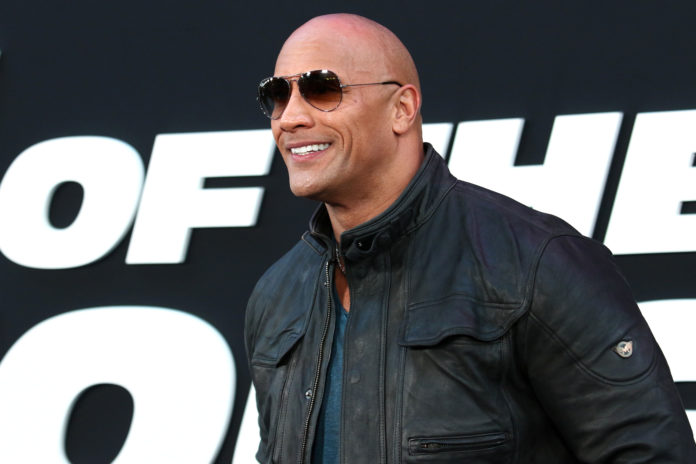Contractor’s motion for summary judgment on its claim against the Army for breach of a licensing agreement is denied. The contractor had an agreement with the Army to sell clothing with Army trademarks. The agreement gave the Army the right to approve any use of the trademarks. The contractor claimed that the Army had breached express and implied terms of the licensing agreement by refusing to approve various designs and uses of the trademarks. In particular, the contractor complained that the Army had wrongly rejected advertising for Army-branded clothing that featured Dwayne “The Rock” Johnson. The court, however, found that the Army was well within its discretion in refusing to approve the contractor’s designs, advertisements, and promotional efforts.
In 2010, Authentic Apparel entered into an license agreement with the Army. Under the agreement, the Army granted Authentic a license to use Army trademarks on clothing. In exchange for the license, Authentic agreed to pay the Army a percentage of the revenues from its clothing sales. The license agreement required Authentic to obtain the Army’s approval for any clothing, design, label, or promotional content. The agreement provided that the Army had “sole and absolute” discretion in approving the use of its trademarks. The agreement further provided that Authentic did not have any rights against the Army for failure to approve the use of a trademark.
For three years, Authentic sold clothing with Army trademarks. As part of its sales efforts, Authentic entered an agreement with Dwayne “The Rock” Johnson, paying him a significant amount of money to promote Authentic’s Army-branded line. Despite The Rock’s efforts, Authentic’s Army-branded clothing was not successful. The company struggled to make its royalty payments to the Army. In 2014, the Army, terminated the contract due to unpaid royalties.
Authentic filed suit against the government, alleging that the Army had breached the licensing agreement and its duty of good faith and fair dealing by inhibiting Authentic’s right to fully exploit the Army’s trademarks and by refusing to approve advertising featuring The Rock. The Army counterclaimed for the nonpayment of royalties. Both parties moved for summary judgment.
A Previous Licensing Agreement Did Not Control
Before entering into a licensing agreement with Authentic, the Army had entered into a 2007 agreement with another company, All American Apparel. That company, which had been run by Authentic’s founder and president, was, in essence, a predecessor to Authentic. All American filed for bankruptcy a year after entering the license agreement with the Army. The bankruptcy court approved the sale of All American’s rights in the 2007 license agreement to Authentic. Although Authentic stepped in as the licensee on the All American contract, the Army decided that rather than continue with the 2007 agreement, it wanted to issue a new license. Hence, the Army and Authentic executed the 2010 license agreement.
Authentic argued in its summary judgment motion that the Army breached the 2010 agreement’s covenant of good faith and fair dealing by not approving the use of trademarks in the manner it had under the 2007 agreement.
The court rejected this argument, reasoning that the 2010 agreement was a different contract between different entities. The 2010 agreement did not reference the 2007 agreement nor the Army’s prior relationship with All American. What’s more, the 2010 agreement had an integration clause that prohibited the court from relying on evidence of the parties’ prior dealings to interpret the agreement’s provisions.
The Army Reasonably Rejected Authentic’s Use of its Trademarks
 Authentic also alleged the that Army breached the licensing agreement by denying the company the right to exploit the Army’s trademarks. The court reviewed the various instances in which the Army rejected Authentic’s designs and found that they were all reasonable.
Authentic also alleged the that Army breached the licensing agreement by denying the company the right to exploit the Army’s trademarks. The court reviewed the various instances in which the Army rejected Authentic’s designs and found that they were all reasonable.
The Army rejected designs due to, among other things, overlapping logos, implying that products were manufactured by the Army, lack of prominence of the Army logo, use of unapproved marks, and factually incorrect designs—e.g., designs using Navy colors, or that implied that the Army, not the Marines, raised the flag at Iwo Jima. In other instances, the Army rejected designs because the emblems had more to do with a county fair fantasy version of the Army—motorcycles, snakes, scorpions—than the actual Army. In all of these cases, the court found, the Army was well within its discretion in rejecting the designs.
The Morale, Welfare, and Recreation Program
Authentic further contended that the Army breached the licensing agreement by refusing to permit the company to truthfully advertise that purchases of the Army-branded clothing would support the Morale, Welfare, and Recreation program, which provides leisure services to soldiers, their families, and military retirees.
But the court found that the Army did not irrationally refuse to allow Authentic to refer to the program. The record showed that Authentic wanted to make incorrect claims about the program, suggesting it was a charity and that royalty payments made the Army under the licensing agreement were partly charitable donations. The MWR program, however, was not a charity; it’s a government organization that receives funding from appropriated funds and commercial sponsorships. The Army rightly rejected Authentic’s attempts to describe the program as philanthropic and to make it a prominent part of the promotional campaign.
The Army Did Not Cause Authentic to Lose a Deal With Samsung
As part of its summary judgment motion, Authentic contended that the Army caused it to lose a financing deal with Samsung. Authentic claimed that in 2012, Authentic and Samsung agreed to a deal in which Samsung would finance Authentic’s push to sell Army-branded footwear. Authentic claimed that because the Army took too long to approve the financing agreement, Samsung lost interest in the deal, and Authentic lost the opportunity to push into the footwear market.
The court was unpersuaded. As an initial matter, it did not appear that the Army had unduly delayed in approving the Samsung deal. Rather, the problem was that Authentic and Samsung failed to provide the Army with a tangible agreement that could be approved. Regardless, the Army’s duty of good faith and fair dealing under the license agreement did not require it to approve Authentic’s separate agreement with Samsung. The Army was not responsible for Authentic’s financing, and the licensing agreement did not even reference financing.
Videos Featuring The Rock
Authentic alleged that Army breached the licensing agreement by refusing to approve promotional videos that the company made featuring The Rock. Indeed, Authentic contended that its inability to exploit The Rock effectively killed the Army-branded line.
The court, however, found that the Army reasonably declined to approve Authentic’s promotional videos. In one of the videos featuring The Rock, one of the actor’s exclaimed “Stand down soldier.” The Army rejected this video because “stand down soldier” was not really an Army expression, and it was degrading to soldiers. In another video with The Rock, Authentic improperly suggested that the clothing was Army-owned, and that Authentic was an Army-Brand outfitter. To make matters worse, Authentic had uploaded this video up on its website before even seeking the approval from the Army.
Army-Branded Womenswear
As part of the 2007 agreement with All American, the Army had approved the use of a First Infantry insignia on women’s clothing. The clothing never sold that well. By the time Authentic entered an agreement with the Army, the women’s garments were sitting in a warehouse in California.
In order to raise much needed cash, Authentic’s principal, who had previously been All American’s president, orally assigned Authentic the right to sell the the All American womenswear. Authentic wanted to remove the First Infantry insignia from the clothing, but the Army refused to allow removal of the insignia for resale. Authentic argued that this refusal constituted a breach of the duty of good faith and fair dealing.
The court was unpersuaded. The womenswear clothing was subject to the 2007 agreement and a bankruptcy court order. The 2010 agreement, to which Authentic was a party, did not encompass or even mention the clothing. Because the 2010 agreement did not cover this clothing, the Army did not owe any implied duty of good faith to Authentic with respect to that clothing.
The Army’s Counterclaim
In a somewhat peculiar move, Authentic asked the court to grant the Army summary judgment on its counterclaim for unpaid royalties. The court entered judgement on liability for the unpaid royalties but deferred judgment on the amount due pending further development of the record.
Authentic is represented by J. Joseph Bainton of Dunnegan & Scilippi, LLC. The government is represented by Joseph H. Hunt, Robert E. Kirschman, Jr., Douglas K. Mickle, Alexander O. Canizares, and Borislav Kushnir of the U.S. Department of Justice as well as James M. Ives and Laurel Q. Simmons of the U.S. Army.






